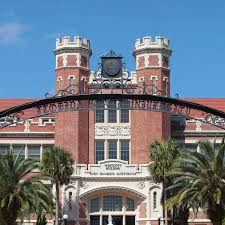Speaker
Description
When center-of-mass energy in heavy-ion collisions decreases down $\sqrt{s_\mathrm{NN}}$ of a few GeV, colliding nuclei are not transparent anymore to each other. This leads to increasingly strong baryon stopping in the collision zone, and the formation of baryon-rich matter, where effects due to resonance excitation play an essential role. The goal is to understand the properties of such a matter, including its equation of state and possible phase structure.
This contribution will discuss the physics outcomes from the data collected by HADES, but also by FOPI at SIS18 and in the STAR beam energy scan program at RHIC. When put together, data provide excitation functions of various informative observables like hadron yields, anisotropy, correlations, and fluctuations.
Particularly interesting are observables related to dileptons. Once produced, they decouple from the hadronic medium and leave the interaction zone undisturbed. This makes them a probe of all the stages of the fireball evolution. With lepton identification in mind, HADES is unique in this energy regime in providing high-precision dilepton data, which will be thoroughly examined during this talk.
| speaker affiliation | TU Darmstadt |
|---|

